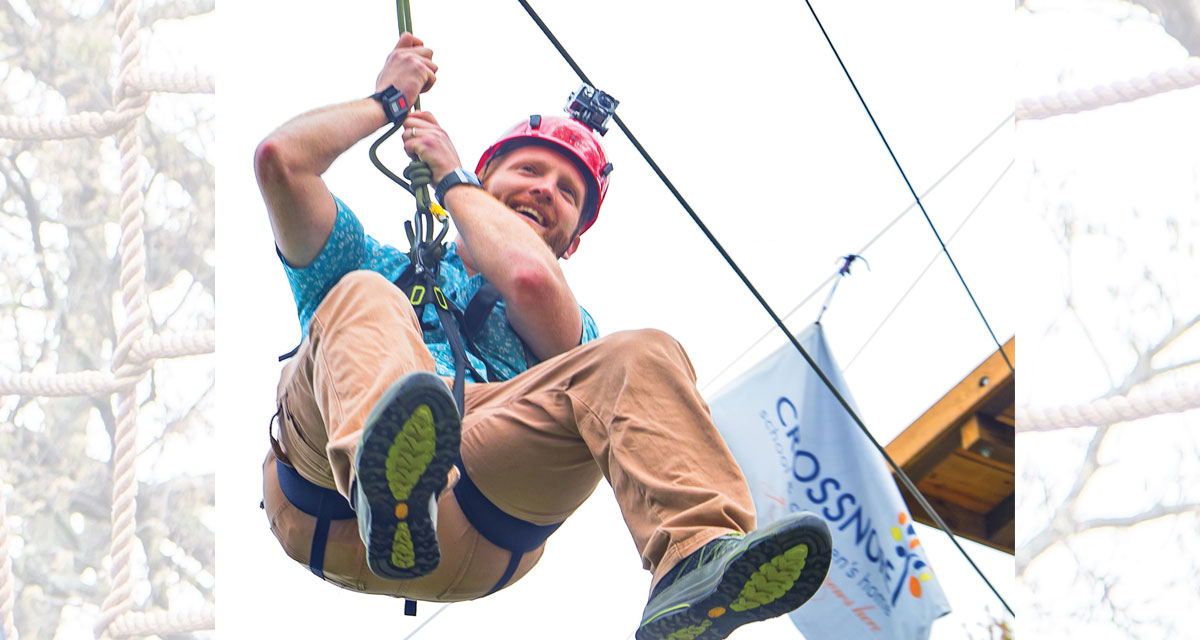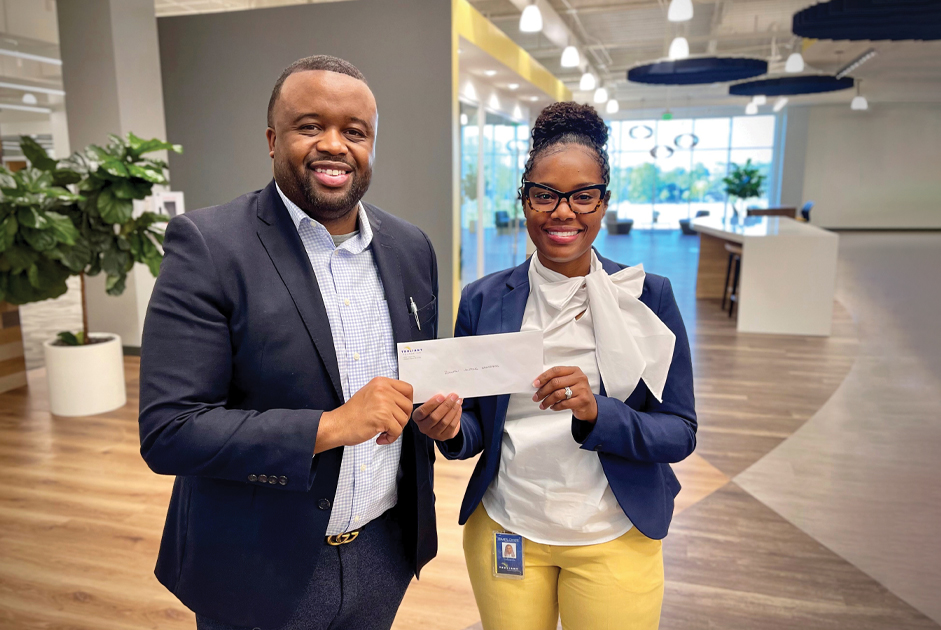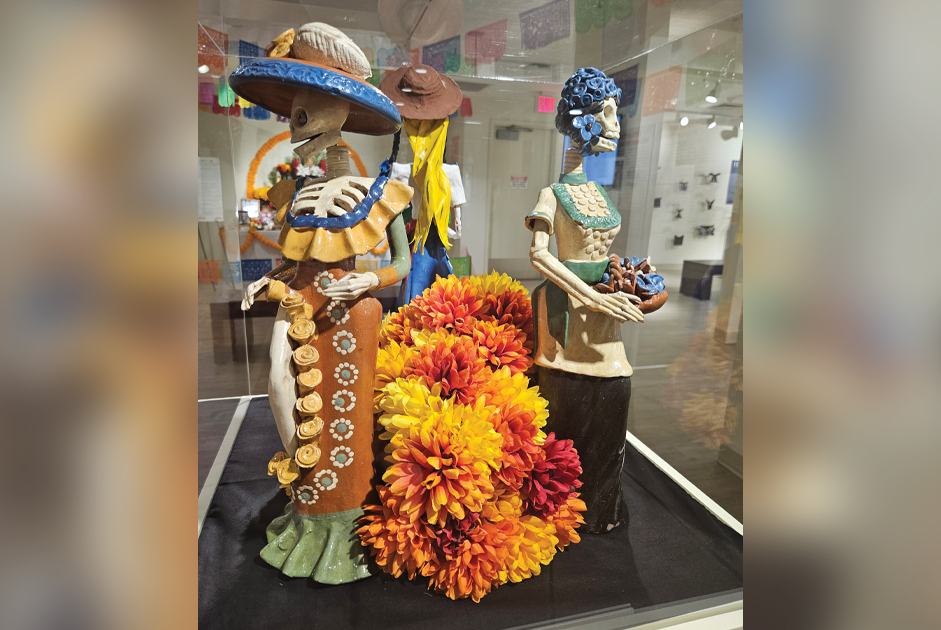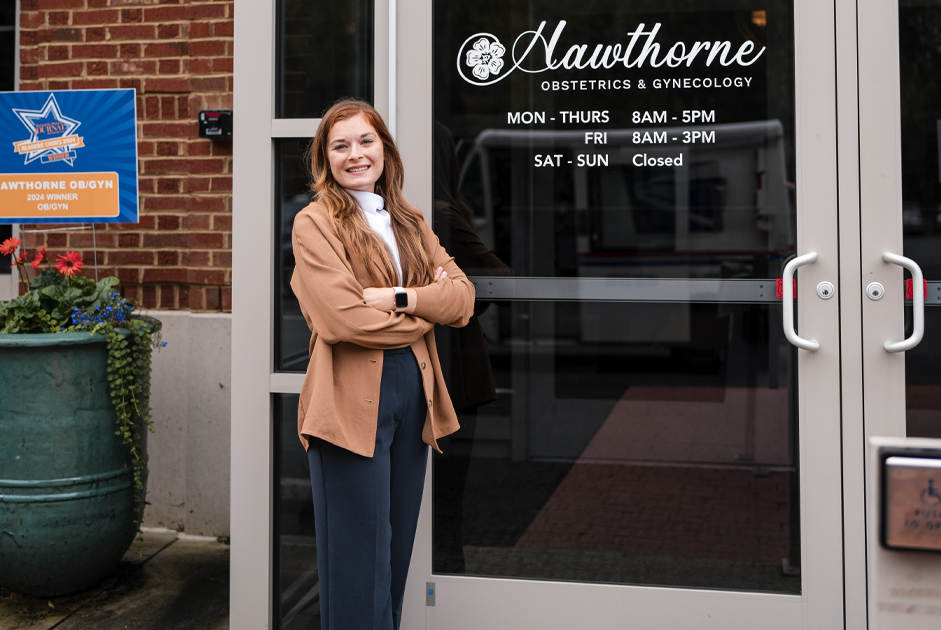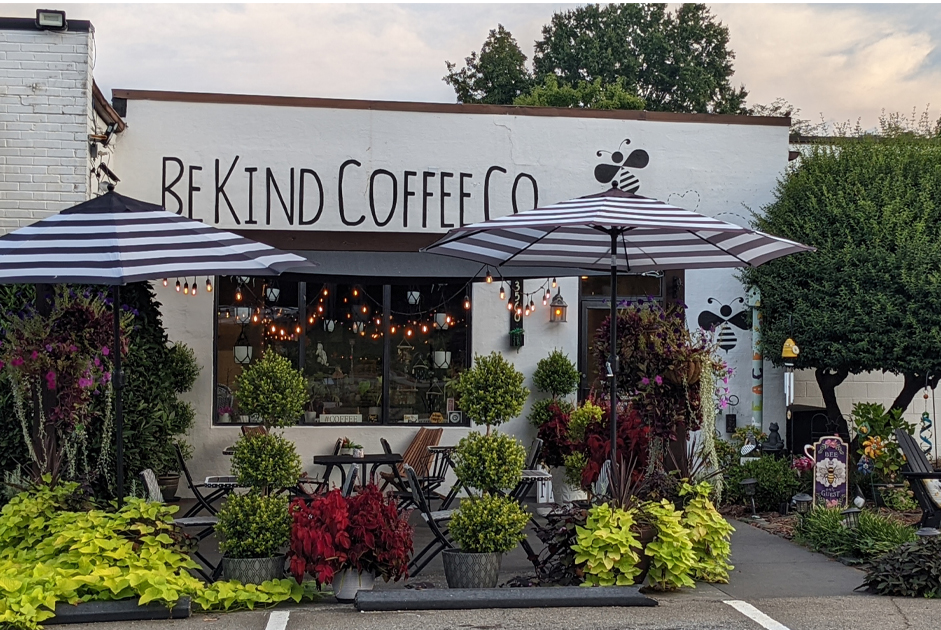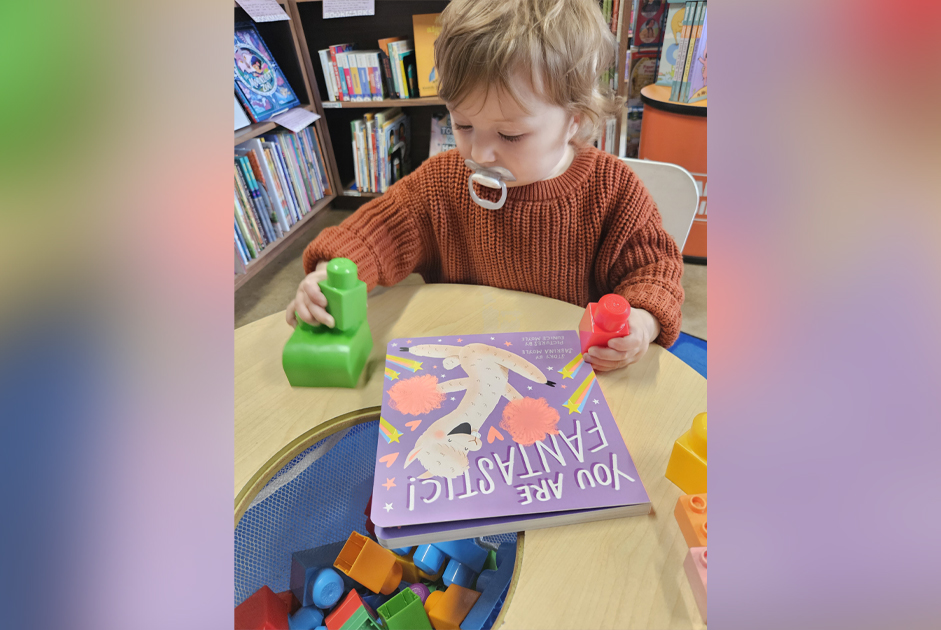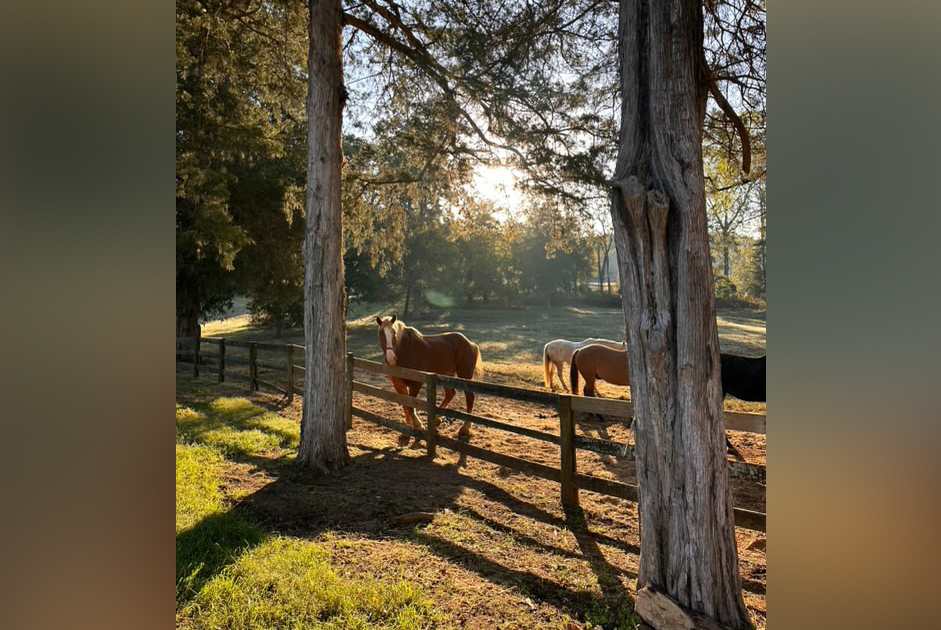BY HOLLY SOLOMON
As the early morning sunlight filters through the trees, there is a quietness that settles over the Crossnore School & Children’s Home campus on Reynolda Road. In this serene setting, important work is done every day to bring hope and healing to children and families. Among the many tools Crossnore uses with these children is a new and exciting opportunity. Due to the generosity of an anonymous donor, construction began last summer on a high-ropes course built by Beanstalk Builders, out of Morganton, NC. The course was opened in September with a training session for Crossnore staff.
The course has become the foundation of Crossnore’s Adventure-Based Counseling program, which is being used with residential, outpatient therapy, and day- treatment children. Andrew Florence has served Crossnore in several capacities for the last five years and in October of 2018, he became the Adventure-Based Counselor. Andrew holds a B.S. from Appalachian State University in Recreation Management with a Concentration in Outdoor Experiential Education. He is pursuing his Master of Science in Youth Development Leadership from Clemson University and will graduate in August of 2019.
The following is an interview with Andrew Florence about his work in Adventure-Based Counseling at Crossnore.
Q: What is Adventure-Based Counseling?
A: Adventure-based counseling is a specific method of doing group-based therapeutic interventions. Typically, it includes games and physical activities and is built on having fun. It strips away the superficiality and gets to how kids relate to one another or how adult teams can relate to one another.
Q: How does Adventure-Based Counseling fit into a trauma-informed care model?
A: As part of our commitment to trauma-informed care, adventure-based counseling activities help our kids recognize their similarities and identify their group belonging. This is important because group belonging, self-efficacy, and peer and adult attachments are the foundation of building resiliency for people who’ve experienced trauma.
With adults and children, it also helps us practice our commitment to shared governance. In the group process, everyone is important, no one is left out, and success relies on every person.
Also, the fun aspect of adventure-based counseling allows us to confront difficult conversations. Utilizing open communication with difficult discussions allows us to go deeper quickly.
Q: What tools do you use in Adventure-Based Counseling?
A: As a trauma-informed organization, we recognize that traumatized kids and adults hold their trauma in their bodies. This intervention helps a person connect to their body and their brain to feel empowered and validated in their experiences and what they are capable of.
When a child experiences trauma, they go into a state of hyperarousal. The same thing happens when you utilize a tool such as the new high-ropes course on the Winston-Salem campus. The course helps each participant face the fear part of their brain and retrains them on how to face stress. It’s a tool to work on how they get through each day, how they relate to their past, and what their future looks like.
Other tools include games and activities on the farm, such as with the therapy horses. We also hope to install a low-ropes course in Winston-Salem in the future. After a session of Adventure-Based Counseling, each child participates in processing the experience with their peers, as well as with safe and caring adults and caregivers. This is an important part of the group process.
Q: What are your hopes for Adventure-Based Counseling at Crossnore?
A: I would love for us to engage every program for the kids—those in foster care and adoptions, residential, and day treatment—at all our locations. Doing so would help us build community within and across all the programs.
Q: How might Adventure-Based Counseling be used with staff at Crossnore?
A: With our adult teams, adventure-based counseling will help us to face and handle the vicarious trauma and organizational trauma inherent in the type of work that we do. We can learn to be more empathetic with one another and create a work environment that is more engaging and fun. This also creates belonging and helps staff identify their part in meeting our mission.
Q: Is the high ropes course open to the public?
A: It is currently used by our trained staff and only with Crossnore clients. However, the course has the potential to be a great resource here in Winston-Salem. We are looking at the possibilities for public use for the future. This could include team building, team bonding, and team development for corporate groups and other youth-serving agencies.
For more information about Crossnore School & Children’s Home and the Adventure-Based Counseling program, please visit www.crossnore.org. Follow Crossnore on Facebook, Instagram, and Twitter for announcements about plans for the high ropes course.

